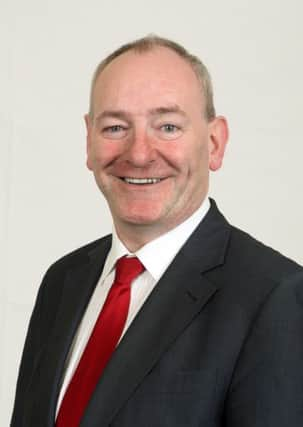Durkan: Nursing bursaries must be protected


Speaking during this week’s parliamentary debate – prompted by an e-petition signed by over 150,000 people – Mr Durkan said:“As a Northern Ireland MP, I am conscious that this debate is about the bursary scheme for the NHS in England. Of course, the scheme recruits students from Northern Ireland who are undertaking courses in England, and as a devolved Administration we also have our own variant of the scheme.
“There is also the question of whether there will be an immediate Barnett consequential to this change to the NHS in England. Even when we get the answer from the Treasury, it changes over time. I have served as a devolved Finance Minister, so I know that in one instance the Treasury will tell you that there is no Barnett consequential, but then a year or two later some new thinking will mean that there is and that the vice has been tightened. Its usual rule of thumb is, “We’re the Treasury; we don’t need a reason,” so it can change at will.
Advertisement
Hide AdAdvertisement
Hide Ad“Although the current Health Minister in Northern Ireland has properly set his face against going down the same road as the UK government on the bursary scheme, the fact is that a significant change such as this has the potential to become the predictable text of future devolved policy. It has a conditioning effect by creating a context, and even when devolved Administrations resist such policy changes it usually adds to their costs, which makes the choice not to make the change harder. There is usually policy opportunity cost elsewhere as well.
“We must recognise that the roots of nursing education have historically been very different from those of other education. It is only recently that we have seen the well-motivated move to ensure that nursing and the allied health professions are truly recognised as professions of degree standard. The problem is that some people take that to mean that we should treat the bursaries in the same way as any other student loan and that that should be the norm. However, we know that it should not. The students in question are not just in training but in service in a real, pertinent and highly pressurised way, which means that they do not have the options for covering their maintenance costs that other people have, and that their time is much more precious. Given their life circumstances, they have responsibilities that students on many other courses do not, so we are not comparing like with like.
“Where has the support for the change come from? Has it come from the professional bodies that represent nurses, midwives, physiotherapists, speech and language therapists, occupational therapists, dieticians, radiographers, chiropodists and podiatrists? No, it has not. They have real concerns about the implications of the change for their members and the services they work in. Has it come directly from the employers? Health service employers in Northern Ireland, including in my constituency (of Derry), constantly talk about workforce problems and the huge pressure to fill places and keep services running. A new radiotherapy unit has opened in a hospital in my constituency, and there will be huge pressure on it to employ and sustain radiologists for the future. Health service employers in Northern Ireland are acutely conscious of the pressures, but none of them has said to me that they believe this change will solve the problem.
“The change seems to be sponsored mostly by the Council of Deans of Health, which is responsible for education, because it will perhaps solve a problem for universities. Universities look at their numbers and their funding and ask what the change will do for their economics, given that they have a key role in educating health service professionals. It will solve a problem for them, but not for the services that are meant to be supported or the professions.”